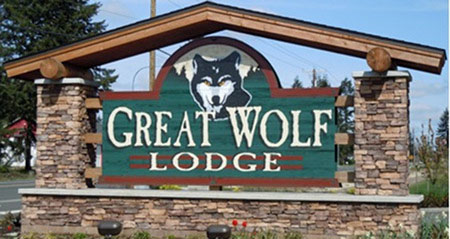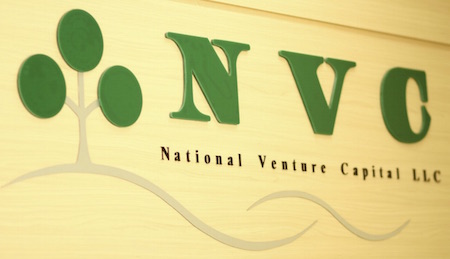Resort Feasibility Study
Leisure Business Advisors LLC (LBA) specializes in conducting the
feasibility study for a variety of leisure businesses, including
resorts. An independent industry expert usually prepares this
detailed study, which is generally required by financing
institutions.
The feasibility study is the first step of the development process
and provides critical guidance for design, construction, and
operations. It evaluates potential market support and forecasts
usage. The feasibility study determines potential financial
performance and maximum warranted development costs. It provides
physical planning parameters, such as total land size needed and
building space required. It also recommends the attraction mix.
As part of the feasibility study, LBA can work closely with you in
preparing the initial image package that would assist designers in
the planning stage of development that follows the feasibility
stage. We could provide a walk-through description and 3D computer
graphics conceptual images of your new resort seen through the
eyes of a typical visitor. These would preliminarily suggest its
planned "look and feel" in business financing and marketing
presentations.
The following paragraphs outline the major tasks typically
involved in conducting a feasibility study.
Task 1: Orientation Meeting
An initial meeting would be held to discuss the resort project in
more detail and to see the prospective site if one has been
chosen.
Task 2: Site and Area Evaluation
The site and local area would be evaluated to determine its
effect on potential usage. Factors include:
- Market proximity
- Physical limitations or constraints
- Access routes
- Traffic patterns
- Surrounding development
- Potential complementary and competitive
facilities
Task 3: Concept Description and Industry Trends
The resort concept would be described and industry trends
discussed. Readers of the feasibility study may be unfamiliar with
the concept and this section of the report provides an
introduction before specific project-related issues are examined.
Task 4: Market Analysis
The market areas would be defined based on distance from the
site. Demographic characteristics for the resident market would be
analyzed to provide an indication of support. This would typically
include:
- Population growth
- Age distribution
- Income distribution
The tourist market would be defined and analyzed. Based on
available information, this analysis would likely examine:
- Current size
- Historic growth
- Other characteristics
Task 5: Evaluation of Comparable Facilities
Selected comparable resorts would be examined. Available reported
information would be provided on individual characteristics,
including:
- Name and location
- Physical description
- Financial performance
- Development costs
Task 6: Annual Usage
Potential annual usage for the proposed resort would be estimated
for the first five years of operation based on a number of
factors, including:
- Planned components
- Size of the available markets
- Qualitative market characteristics
- Market performance achieved by comparable
resorts
- Location and potential competition
Task 7: Physical Planning and Concept Development
LBA would make physical planning recommendations needed to
service expected market demand. The specific parameters vary from
one resort to another. Physical planning parameters may include:
- Recommended types of activities
- Recommended mix and sizing
- Recommended visitor service space
- Minimum land area or building space needed
Initial conceptual efforts may also be provided. These could
include:
- Functional layout diagram for the new
resort
- Narrative description of a typical visit
from the perspective of a typical family
- 3D computer graphics visualizations of
selected activities
The final report could also include a video presenting the
results of the feasibility study with a "fly-through" or "walk
through" computer animation of part of the new resort.
Task 8: Financial Analysis
The financial analysis for the proposed resort would be based on
the selected concept and potential usage. Financial estimates for
the first five years of operations would include:
- Revenues by category
- Operating expenses
- Operating profit or surplus
- Return-on-investment for equity investors,
if applicable
Task 9: Warranted and Typical Development Cost
LBA would determine the warranted development cost or investment
based on potential profitability. This is the recommended maximum
amount that should be spent to effectively develop the project and
return a reasonable return-on-investment to equity investors. This
warranted amount would be compared to the actual development costs
for other comparable resorts. Relative size would be taken into
consideration. This comparison would provide guidance as to
whether the proposed resort could be developed for its warranted
investment. If it can be, the project is considered financially
feasible.
Past Resort Consulting Projects
John Gerner, LBA's managing director, has conducted feasibility
studies for many resorts over the past 30+ years. These include:

Great Wolf Lodge Waterpark Resort
(Greene County, New York USA)
Great Wolf Resorts is the world's largest chain of indoor
water parks, and operates its family resorts under the
"Great Wolf Lodge" brand. The resorts also offer specialty
restaurants, arcades, spas, fitness rooms and children's
activity areas. The first Great Wolf Lodge location opened
in 1997 in Wisconsin Dells, Wisconsin. The chain has since
added eleven additional locations, with more currently in
development.
In 2012, Leisure Business Advisors LLC (LBA) conducted an
independent consultant audit of the market feasibility
study for a proposed Great Wolf Lodge in the Catskill
Mountains tourist destination region. The client was the
Greene County Department of Economic Development, Tourism
and Planning. As part of this assignment, LBA conducted a
series of financial stress tests on the anticipated
payment revenues for the proposed infrastructure bonds. Click
here to download this publicly available report.

Holiday Village Resort (Ulaanbaatar
Area, Mongolia)
Leisure Business Advisors LLC (LBA) was retained by
National Venture Capital to evaluate the market and
financial feasibility of a proposed themed four-season
holiday village resort hotel near Mongolia's capital city
of Ulaanbaatar. The entire assignment involved evaluating
the concept, analyzing the market, estimating market
potential, and gauging financial performance.

Wisp Resort Expansion (McHenry,
Maryland USA)
The Wisp Resort is a popular tourist destination that has
been rated as one of the top ski resorts in the
Mid-Atlantic region. It is a 2,700-acre planned real
estate development, with government approvals for
approximately 2,500 residential units (townhomes,
condominiums, and single family homes).
The Wisp Resort Hotel & Conference Center is located
at the base of the mountain. The seven-story hotel
includes 102 suites & 67 standard rooms. Since 2001,
the entire resort has undergone more than $30 million in
renovations and additions. Future plans include a
mountaintop village, retail shops, restaurants, and
additional skier services.
The resort community is considered a four-season
market. Adjacent is Deep Creek Lake, the largest
inland lake in Maryland, with more than 65 miles of
shoreline.
As a subcontractor to Norton Consulting, Leisure Business
Advisors LLC (LBA) analyzed future development options and
prepared market share projections for expanding the Wisp
Resort in 2008. The client was Signal Hill Capital Group
LLC on behalf of Wisp Resort Development, Inc.


